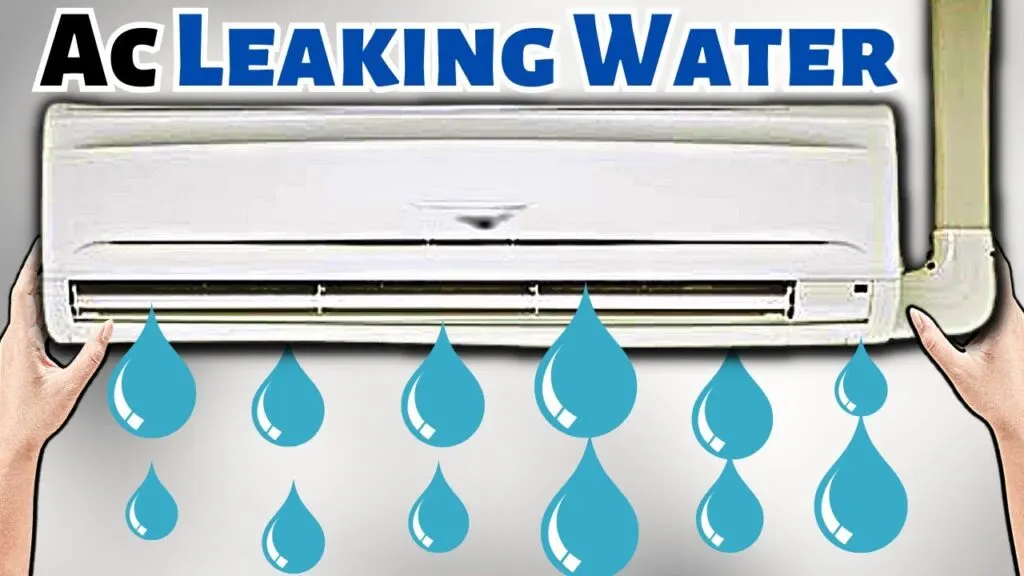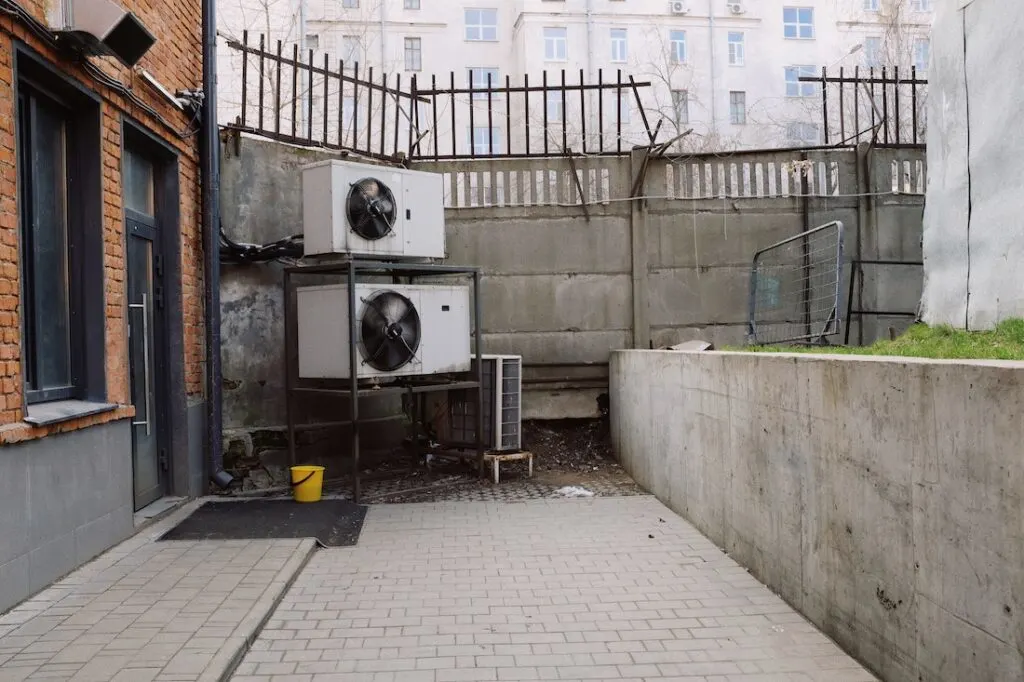Your air conditioner should run efficiently and not produce any byproducts. When AC systems are in less-than-ideal condition, they often leak water, which is a clear indication that something is wrong. If you notice your AC is leaking water, that is a sign that you should call for the help of a qualified HVAC technician.

Some of the common causes of AC water leaks are fairly easy to see when you know what they are. So let’s take a closer look to help you recognize the most common sources of water leakage from your AC system and stop it from getting worse.
1. Clogged Drain Line
One of the most common reasons your AC is leaking water is a clogged drain line. All AC systems have drain lines that enable condensation to collect in the drain line and flow away to evaporate into the air. When a drain line is blocked, it won’t let the water flow away from the air conditioner. Instead, it can build up in the drain pan and overflow. You might notice water pooling up beneath your AC unit or the heat pump. This is a strong indicator that a clogged drain line might be the problem.
2. Defective Float Switch
Your AC system has a drain pan that collects excess water produced by condensation. When the drain pan fills up to a certain level, a float switch is supposed to enable safe drainage away from the AC system. Unfortunately, a defective AC float switch will not enable your AC system to allow water to escape from its drain pain. If the bottom of the AC unit is wet and the drain pan is overflowing, the float switch might be the culprit.
3. Excessive Condensation
Condensation commonly occurs when air conditioners help to remove humidity from inside your home. Improper insulation, a clogged drain pump, and high humidity levels are just a few of the potential causes of excessive condensation that can result in your AC leaking water.
That excess moisture will often find its way inside your home and can cause water to drip into your home from beneath your AC unit. Air conditioners that are mounted in windows or are mini-split systems are especially prone to causing excessive condensation inside homes.
4. Evaporator Coil Frozen
Another potential reason your AC is leaking water is that the evaporator coil has frozen. Air conditioners have an evaporator coil that is very cold when refrigerant passes through it and creates the cold air that cools your home. The evaporator coil might become coated with moisture that freezes on the coil and makes it less effective.
You can clean the evaporator coil to help prevent it from freezing up and causing water to enter your home. If the coil is coated in ice or frost, it won’t work efficiently and might cause condensation that causes the drain pan to overflow.

5. Clogged Air Filters
Clogged air filters are one of the most common causes of your AC leaking water. A dirty air filter that makes it harder for air to pass through also can cause the evaporator coil to freeze. A clogged filter prevents air from circulating properly, which in turn makes it possible for condensation to freeze to the evaporator coil. If the AC unit is less effective, a check of the air filter and evaporator coil might reveal a clogged filter causing the coil to freeze and the drain pan to overflow.
6. Improper Installation of AC System
Your home’s air conditioner must be installed correctly for it to work properly. Most central air systems are installed in a manner that enables proper drainage of condensation, but some might be installed in a manner that makes it harder for condensation to collect in a drain pan and flow away safely from the AC unit. This could be why your AC is leaking water. Smaller air conditioners, like those that are placed in windows or that are mini-split systems, are more prone to improper installation.
When an AC system is not mounted on a level surface, it affects the drainage system and might make it impossible to drain properly. If you see water collecting around the air conditioner, using a level could help you to know if the system is mounted improperly and might need to be leveled.
In Conclusion
The efficient operation of your air conditioner is paramount to ensuring comfort and functionality within your home. If your AC is leaking water, it can indicate underlying issues ranging from clogged drain lines to defective components. By promptly addressing these concerns and enlisting the expertise of a qualified HVAC technician, you can ensure that your AC continues to work efficiently throughout the seasons.
